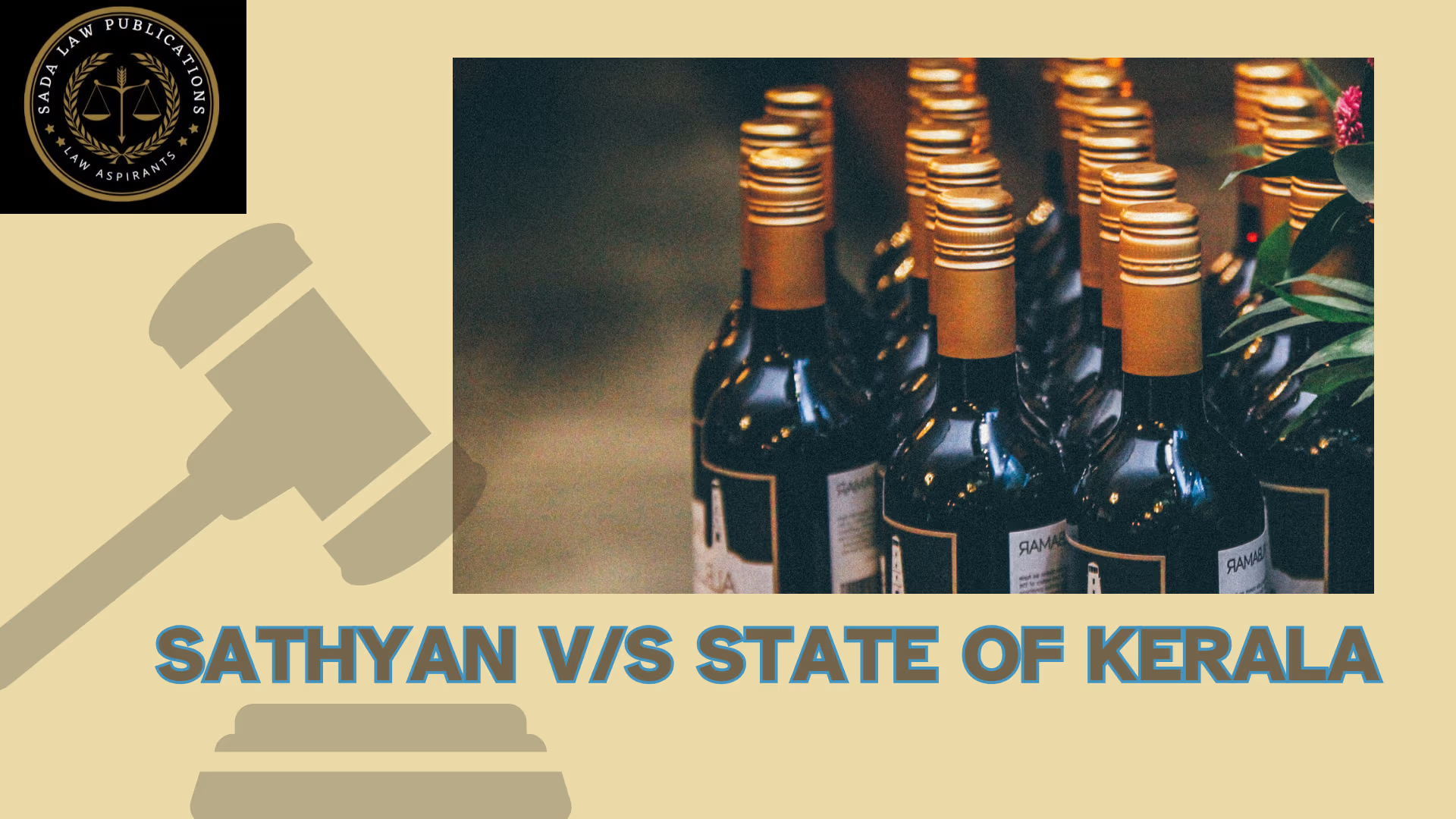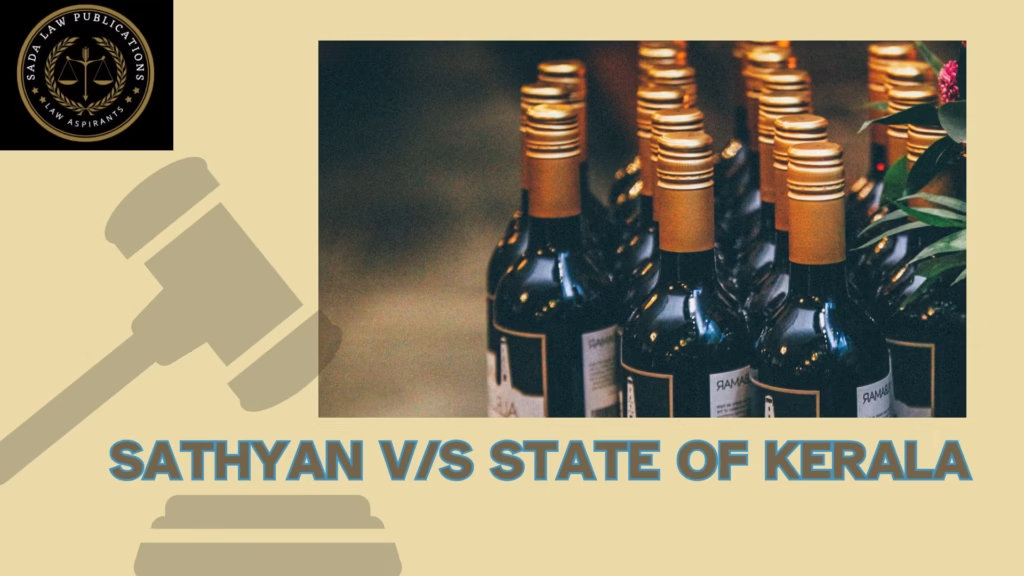Sathyan v. State of Kerala (2023)
- Nisha Kumari
- 14 October, 2025

Introduction
In the case of Sathyan v. State of Kerala, decided on 11 August 2023 by the Supreme Court of India, the appellant Sathyan challenged his conviction under the Kerala Abkari Act, which regulates the manufacture, sale, and possession of liquor in the state. Sathyan was accused of illegally possessing and transporting liquor without a valid permit.
The case centered on whether procedural delays—particularly the delay in forwarding the seized liquor to the magistrate and the prolonged filing of the charge sheet—violated the accused’s right to a fair investigation and trial under Article 21 of the Indian Constitution. The Supreme Court examined whether such lapses were substantial enough to overturn the conviction.
Background / Facts of the Case
On 1 October 2003, the appellant, Sathyan, was intercepted by Excise officials at Kunnamangalam, Kerala, while carrying 5 litres of arrack in a jerry can inside his autorickshaw. A seizure mahazar (report) was prepared on the spot, and a sample of the contraband was collected for chemical analysis.
During the trial, Sathyan raised concerns regarding:
An interpolation in the seizure mahazar, where the sample quantity appeared altered from 375 ml to 180 ml.
A delay in forwarding the seized sample to the magistrate.
A three-year delay in filing the final charge sheet.
Sathyan argued that these procedural lapses vitiated the entire investigation and violated his right to a fair trial under Article 21. Nevertheless, both the Trial Court and the Kerala High Court convicted him under the Abkari Act, prompting his appeal before the Supreme Court.
Issue of the Case
Whether procedural irregularities and delays—including delays in forwarding the seized liquor to the magistrate and filing the charge sheet—vitiate the prosecution’s case and justify setting aside a conviction under the Abkari Act?
Judgment
The Supreme Court of India upheld Sathyan’s conviction under the Abkari Act, affirming the judgments of the Trial Court and the Kerala High Court. The Court held that:
Procedural delays alone do not invalidate a conviction unless the accused demonstrates actual prejudice caused by such delay.
The delay in forwarding the seized material or filing the charge sheet, though undesirable, was not fatal to the prosecution’s case.
The trustworthiness of official witnesses (Excise officers) could not be discredited merely because there were no independent witnesses.
The interpolation in the mahazar was deemed minor and did not affect the validity of the seizure or the chemical analysis results.
While upholding the conviction, the Court exercised leniency by reducing the sentence and extending the time for payment of fine, recognizing that procedural lapses occurred but did not compromise the fairness of the trial.
Conclusion
The Supreme Court, in Sathyan v. State of Kerala, reaffirmed the legal principle that procedural lapses such as investigative delays or absence of independent witnesses do not automatically nullify a conviction if the prosecution’s evidence is credible and consistent. The Court emphasized that the credibility of official witnesses cannot be discarded without valid reason and that procedural irregularities must be viewed in the context of the overall fairness of the trial.
Although acknowledging the procedural shortcomings, the Court found no substantial prejudice caused to the appellant. Thus, the conviction under the Abkari Act was upheld, but the Court showed partial leniency in sentencing—balancing procedural fairness with substantive justice.
Case Laws







